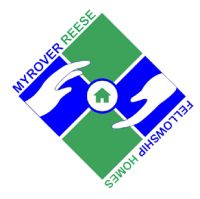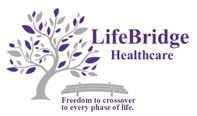LIFE Concepts
Drug Rehab Center in Fayetteville, North Carolina
- Opioid Addiction
- Dual Diagnosis
- Drug Addiction
- Alcoholism
Life Concepts is an addiction treatment and recovery center in Fayetteville, NC that offers comprehensive care for individuals struggling with substance abuse and mental health issues, providing evidence-based therapy and treatment through a variety of services including residential long term programs.
Multiple patients have reported LIFE Concepts as permanently closed.
Research other rehabs in Fayetteville, North Carolina, or get help finding an open facility.
Our experts will find you an alternative facility.
(888) 674-0062 24/7 Free, Confidential, Expert HotlineAbout This North Carolina Facility
Life Concepts, located in Fayetteville, NC, is an addiction treatment and recovery center specializing in substance abuse and mental health issues. The facility provides comprehensive care to individuals struggling with alcohol, opioid addiction, and dual diagnosis issues. Their experienced team of multidisciplinary professionals delivers sophisticated, evidence-based therapy and treatment through a variety of proven services. The clinicians employ a range of therapeutic modalities to create personalized treatment plans that address an individual’s unique needs.
Life Concepts provides treatment at multiple levels of care including aftercare support, drug rehab, and outpatient treatment. Patients can take advantage of therapeutic services such as couples therapy, family therapy, group therapy, and individual therapy for the most effective care. The facility also provides a residential long term program of more than 30 days for those who need more intensive treatment and support. Life Concepts is committed to providing compassionate, evidence-based care to help individuals achieve lasting sobriety.
Genders
Ages
Modality
Additional
Conditions and Issues Treated
Opioid addiction treatment should be done in a medically supervised drug rehab. Opioid addiction treatment will include detoxification and drug rehab counseling to help both the user and their loved ones learn how to live a successful sober lifestyle. Methadone, buprenorphine, and naltrexone are three medications that can help treat opioid addiction. Individual drug rehab counseling sessions can be helpful to discuss any questions or concerns with the drug treatment program.
Alcohol Abuse, Dual Diagnosis (Co-Occuring Disorders), Opioid Addiction
Levels of Care Offered at LIFE Concepts
This center offers a variety of custom treatment tailored to individual recovery. Currently available are Aftercare Support, Drug Rehab, Outpatient, with additional therapies available as listed below.
Individuals struggling with drug addictions can get help from several treatment options, including inpatient and outpatient programs. Outpatient drug treatment programs can also provide patients with different levels of care, usually depending on the patient’s degree of addiction.
At an outpatient program in Fayetteville, a patient will attend a recovery program during the day and return home in the evening. Suppose a patient is struggling with drug addiction. In that case, an outpatient program can serve as an effective transition point during the recovery process.
Aftercare is a part of drug rehabilitation. It is also known as “post-treatment support.” Aftercare programs are available for addicts after they complete drug rehab. It is often the final step in the recovery process. The goal of aftercare is to ensure that addicts maintain their achievements in rehab and do not relapse. Professionals generally provide aftercare (including addiction therapists, physicians, social workers, psychologists) and involve individual and group therapy sessions.
Therapies & Programs
Individual therapy is a critical component of addiction recovery. It allows the patients to go deep into their core issues and discover how to handle those problems better. Therapy can be conducted in individual sessions as well as group settings. In individual therapy for addiction, the patient meets with their therapist one-on-one to focus on the underlying issues. This allows patients to open up and discuss personal topics they may not feel comfortable discussing in a group setting. This type of therapy can help develop solutions specific to each patient, which helps speed up the recovery process.
Couples therapy is beneficial for couples in which at least one partner has a substance use disorder. This type of therapy can help partners improve communication skills, which is an important factor in a healthy relationship. It can also help partners better understand one another so they have a greater understanding of how the other partner may be feeling.
Benefits of couples therapy include:
- Improvement in communication skills
- Increased understanding of the dynamics within a relationship
- Increased sense of support and trust in the relationship
- Better teamwork between partners/increased willingness to listen and work together
- Enhanced tolerance of each other’s shortcomings
- Improved ability to have open, honest communication with each other
Family therapy is a crucial part of drug treatment and getting sober. It is one of the most effective ways to help addicts stay on the path to long-term sobriety. When a drug addict decides that they want to try and get sober, it takes the support of every person they love to succeed. It can be incredibly difficult for loved ones to watch an addict go through the pain and suffering of withdrawal, but by being there with them and supporting them, they can help to make sure that the addiction never returns.
One of the most important parts of family therapy is the relapse prevention plan. During treatment, therapists and doctors will often sit down with the addict and their family to develop a plan in case the addict ever feels like they want to use again. This plan should involve steps the addict and family can take together to prevent them from relapsing in the future. An addict’s family can play a vital part in helping them to avoid relapse because they can spot the warning signs and help them get back on track before it becomes too much of a problem.
Group therapy helps prevent addicts from feeling isolated or unique in their situation by offering a sense of comfort and fellowship. It also creates a forum for addicts to build their support systems and learn from each other. The group therapy sessions at LIFE Concepts occur in a group setting rather than one-on-one to create a safer, controlled environment where addicts feel comfortable.
Aftercare, Couples Therapy, Drug Rehab, Family Therapy, Group Therapy, Individual Therapy, Outpatient Treatment (OP), Residential Long Term (>30 Days)
Additional Details
Specifics, location, and helpful extra information.
Fayetteville, North Carolina 28301 Phone Number(910) 222-8901 Meta DetailsUpdated November 25, 2023
Staff Verified
Patient Reviews
There are no reviews yet. Be the first one to write one.
Fayetteville, North Carolina Addiction Information
North Carolina ranks 29th in the nation for overall substance abuse. Many of the drugs abused in the state are illicit, and many of these are opioids. Prescription opioids are readily available due to the high rates of medical workers prescribing them. The number of prescriptions has increased tenfold since the 1980's. Opioid overdoses are the most common type of death in North Carolina.
The number of drug-related deaths in Fayetteville, NC increased by 60% from 2008 to 2010. The number of individuals that needed drug or alcohol treatment in the city was 570. Marijuana-related drug crimes account for 600 arrests per year. Treatment such as recovery groups are made up of recovering addicts that support each other's sobriety efforts, additional treatments are also available in Fayetteville.
Treatment in Nearby Cities
- Troy, NC (58.6 mi.)
- Hillsborough, NC (68.9 mi.)
- Apex, NC (44.5 mi.)
- Pilot Mountain, NC ( mi.)
- Knightdale, NC (53.9 mi.)
Centers near LIFE Concepts
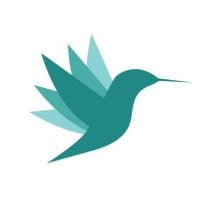
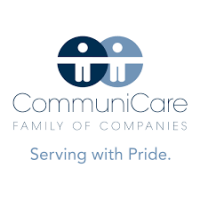
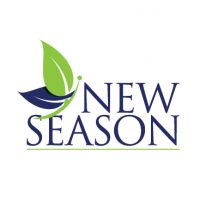
The facility name, logo and brand are the property and registered trademarks of LIFE Concepts, and are being used for identification and informational purposes only. Use of these names, logos and brands shall not imply endorsement. RehabNow.org is not affiliated with or sponsored by LIFE Concepts.

